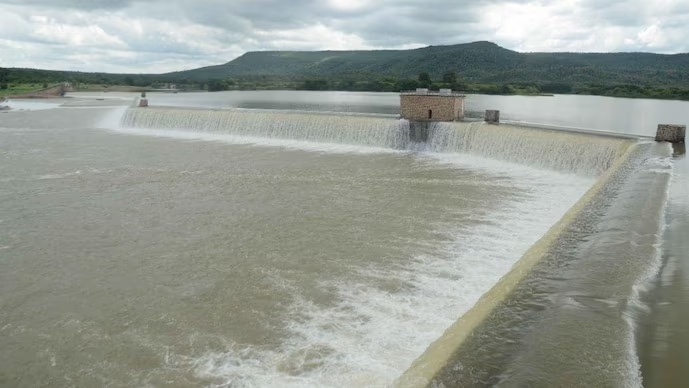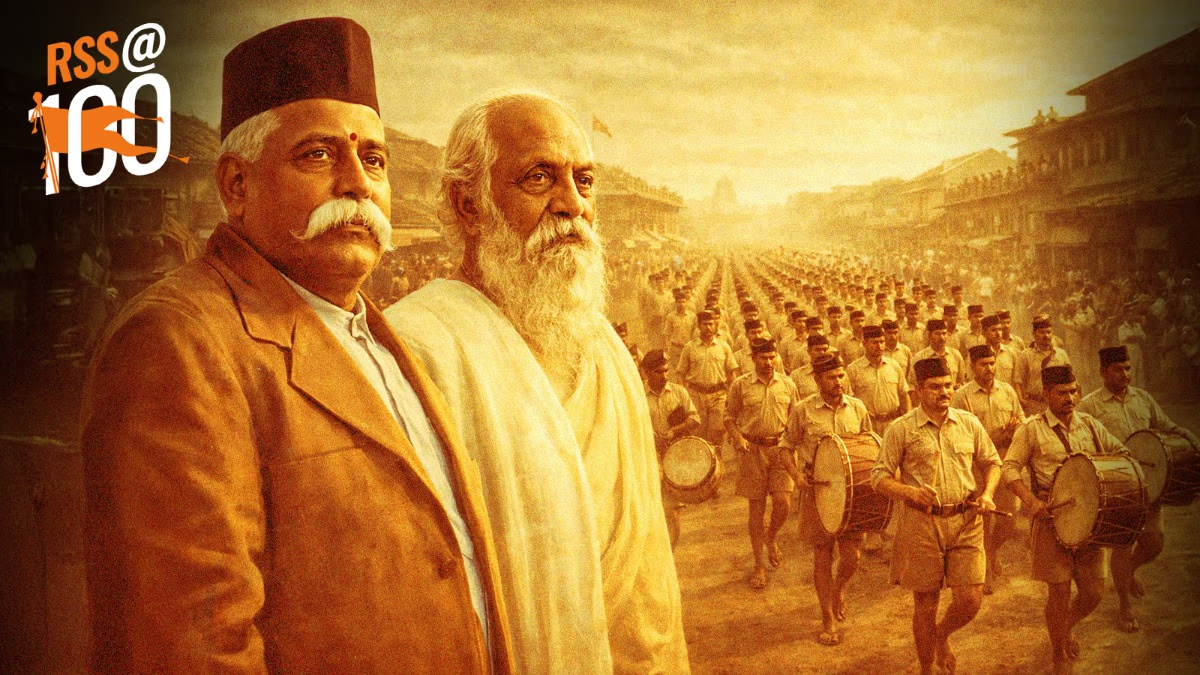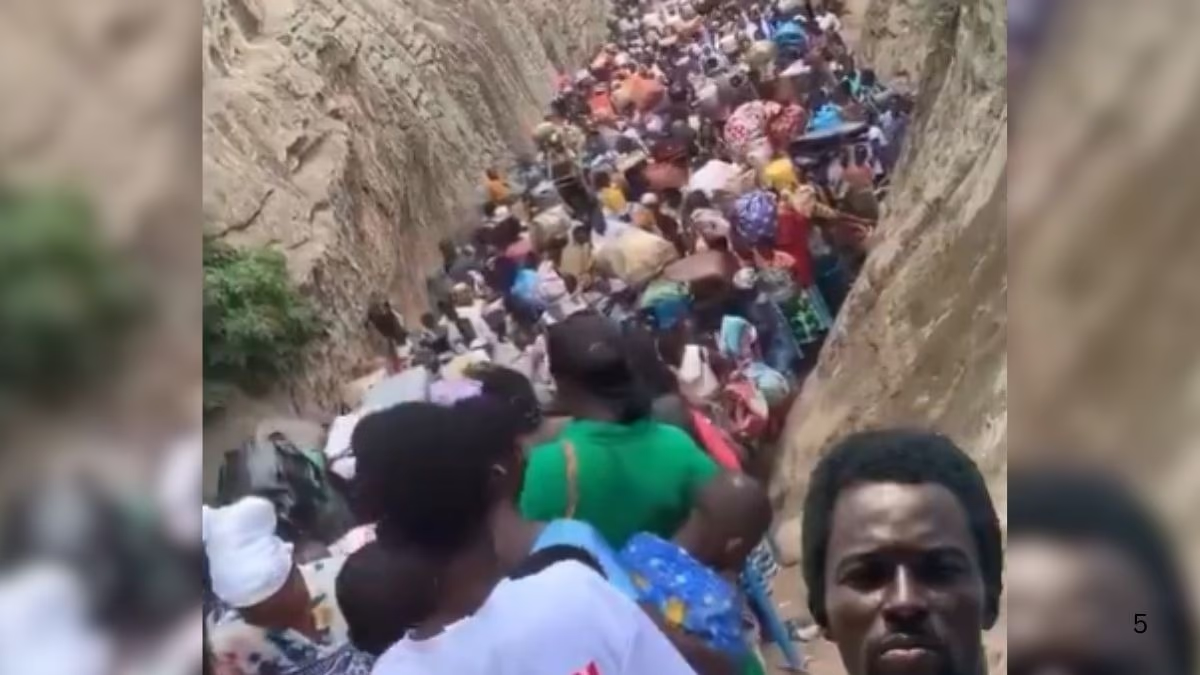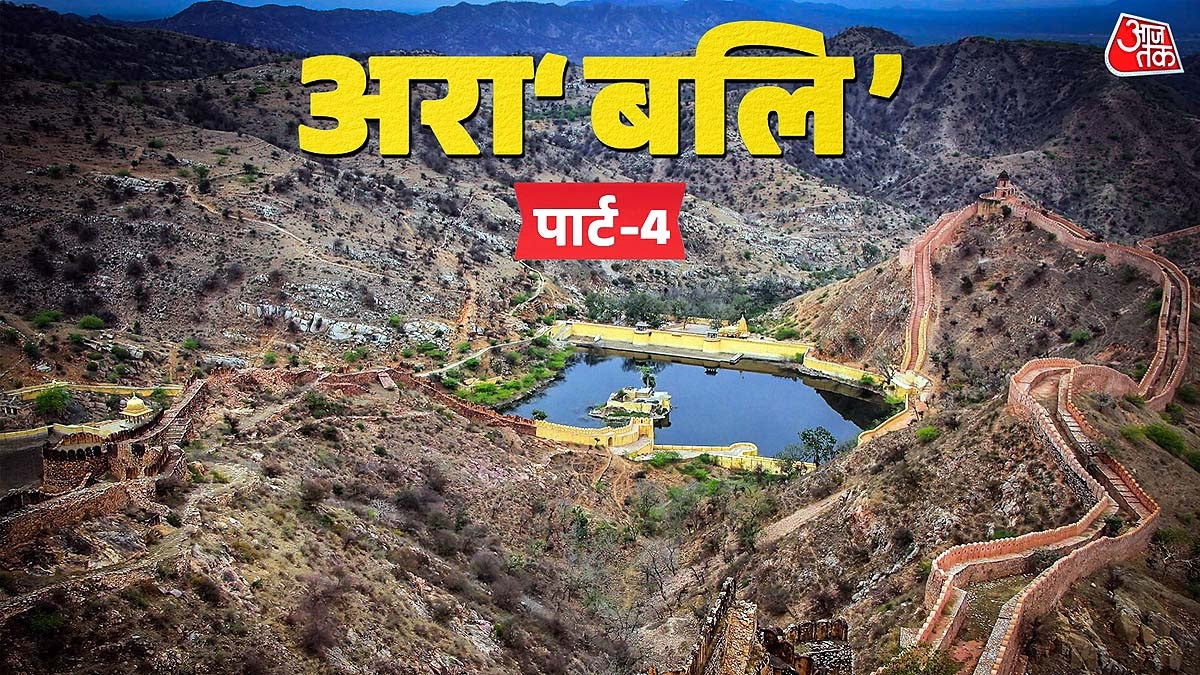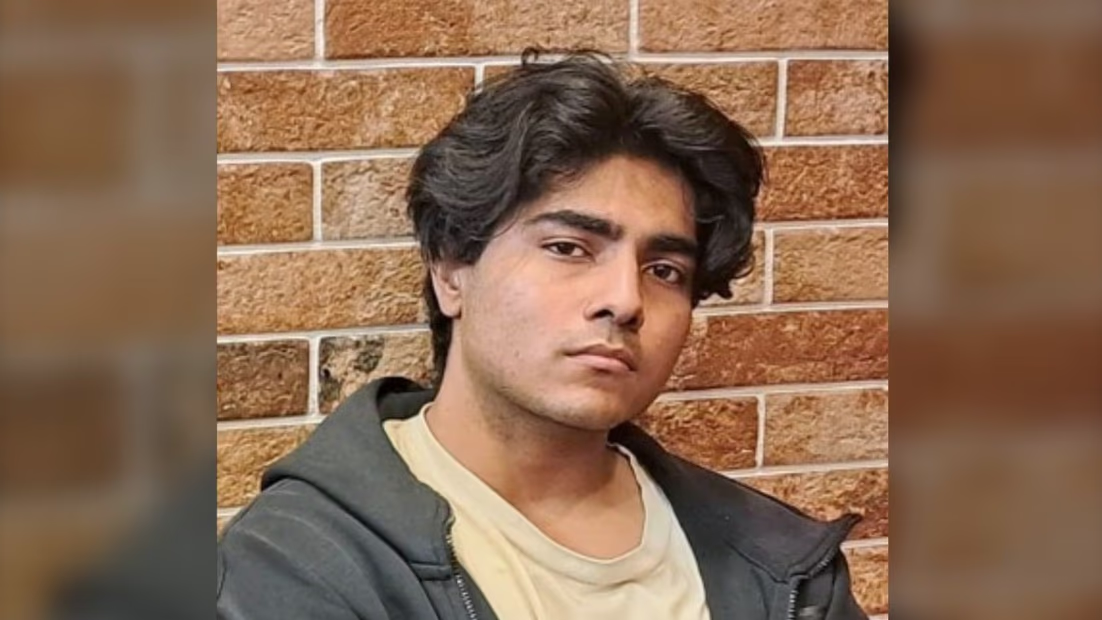On the occasion of former Prime Minister Atal Bihari Vajpayee's birth anniversary, today PM Modi will lay the foundation stone for the Ken-Betwa River Interlinking Project in Khajuraho, Madhya Pradesh. Let's uncover the key details of this project...
What is the Ken-Betwa Link Project?
The purpose of the Ken-Betwa Link Project is to transfer water from the Ken River in Madhya Pradesh to the Betwa River in Uttar Pradesh to irrigate the arid Bundelkhand region. The Ken River, arising near the Kaimur hills of Jabalpur, flows northward for 427 km before merging with the Yamuna River in Chilla Village, Banda District, Uttar Pradesh. There are five dams on the Ken River and its tributaries.
The Betwa River, meanwhile, flows for 576 km from Raisen District, Madhya Pradesh, to meet the Yamuna River in Hamirpur District, Uttar Pradesh. A canal will be constructed to connect these two rivers.
When was this project initiated?
During Atal Bihari's tenure as Prime Minister, a decision was made to interlink 36 rivers across India, one of which was the Ken-Betwa river project. Despite many years of delay, a canal is now planned to connect the Ken and Betwa rivers, with the construction of the Daudhan Dam enabling water transfer from Ken to Betwa.
Benefiting UP and MP: Two States Gain
The Ken-Betwa Project is estimated to provide drinking water to approximately 44 million people in 10 districts of Madhya Pradesh and 21 million people in Uttar Pradesh, benefiting a total of 6.5 million from both states. The estimated cost of this project is INR 44,605 crores, with a significant impact on two states.
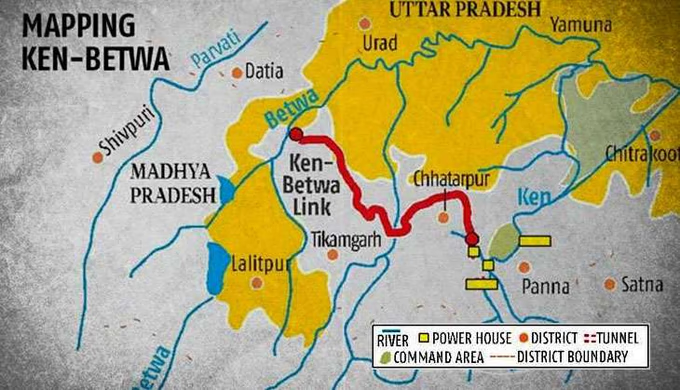
Source: aajtak
Which Districts in MP Will Benefit?
The project will benefit 10 districts in Madhya Pradesh, namely Panna, Damoh, Chhatarpur, Tikamgarh, Niwari, Sagar, Raisen, Vidisha, Shivpuri, and Datia. The project is expected to irrigate 811,000 hectares across approximately 2000 villages in these districts.
Which Districts in UP Will Benefit?
Farmers in Uttar Pradesh districts including Mahoba, Jhansi, Lalitpur, and Banda will benefit significantly. The Bundelkhand area is anticipated to experience a revival, providing a lifeline to the drought-stricken regions.
Generating Electricity
This project aims to contribute 130 megawatts of green energy through hydropower projects and ensure a sufficient water supply for industrial development, thereby increasing job opportunities and spurring economic growth.
Revival of 42 Reservoirs
As part of this project, 42 ancient reservoirs from the Chandela era will be developed and restored.
Relief from Floods and Droughts
The construction of the Daudhan Dam within this project aims to alleviate flood and drought conditions across both states.
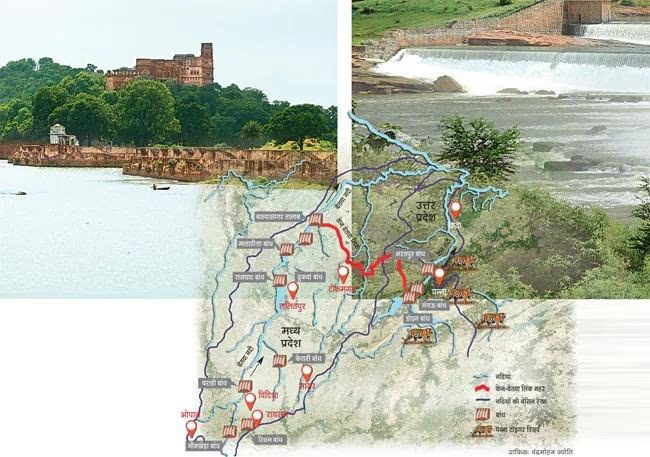
Source: aajtak
Solving Farmers' Irrigation Problems
This project ensures sufficient water for irrigation and also supports drinking and industrial water needs. With this initiative, economic and social growth is boosted, tourism is promoted, and new employment opportunities are created. The groundwater levels in the drought-hit Bundelkhand region will improve. The Ken-Betwa Project is heralded as the largest irrigation project in the country, utilizing a subsurface pressurized pipe irrigation system.
Read More:
Enhanced Water Supply
Chief Minister Mohan Yadav noted that the dam will store 2,853 million cubic meters of water. Excess water from the Ken River will be transferred to the Betwa River via a 221 km long link canal, enhancing irrigation and water supply across both states.
Benefit to Panna Tiger Reserve
Chief Minister Mohan Yadav explained that the Daudhan reservoir will provide year-round drinking water to wildlife in the Panna Tiger Reserve, improve the forest ecosystem, and reduce flood risks in Banda District, UP. The project will resolve the ongoing water crisis in Bundelkhand and curb migration for jobs.
Why was this project delayed for so long?
The question arises as to why this project was delayed for so long. Environmental and wildlife conservation issues caused delays, as the project passes through the Panna Sanctuary. However, this was addressed with a memorandum of understanding (MoU) signed on March 22, 2021, in the presence of PM Modi, between the Chief Ministers of Madhya Pradesh and UP alongside the Union Minister for Jal Shakti.
